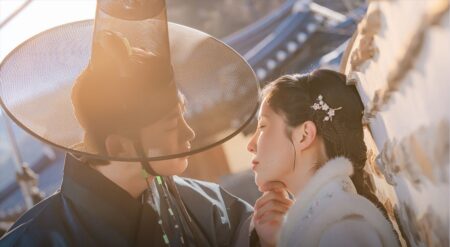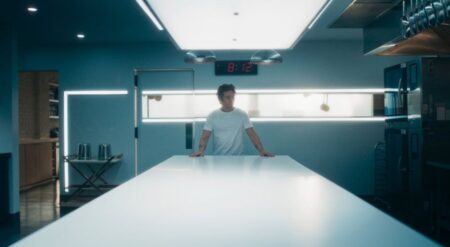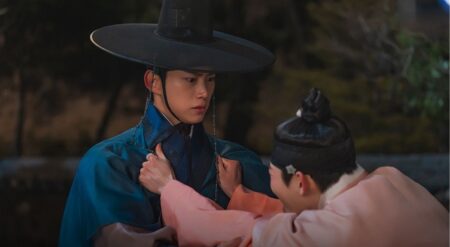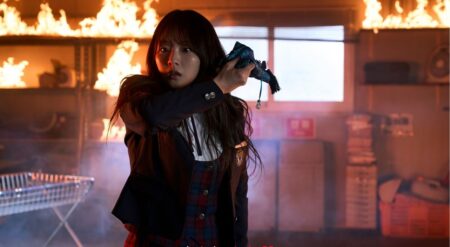
Cross-cultural love stories are a dime a dozen, but not many show the give and take of choosing to leave your country and your family for the person you love. From Scratch is the newest Netflix Original miniseries, and inspired by the memoir of the same name. This cross-cultural love story follows Amahle “Amy” Wheeler (Zoe Saldaña) an American student studying abroad in Italy, as she meets and falls in love with Lino (Eugenio Mastrandrea), a Sicilian chef. Their whirlwind romance faces many unforeseen challenges, including their very different cultural backgrounds. There is drama, and there is comedy, with tears and laughs in equal measure. Their love and life together is challenged when Lino is faced with unimaginable health challenges. From two opposite sides of cultural customs, location, and language, the two families come together to create an extended family unlike any they could have imagined.
There are large swaths of From Scratch that are deeply emotional. From Lino being looked down on by Amy’s family to his isolation going from a chef in a stunning restaurant to slinging slop, you can feel the life being sucked from him. Additionally, Saldaña’s performance as Amy is at times melodramatic, but at the time she is able to tap into parts of raw grief visually that resonate through the screen. That said, it’s the melodrama that hurts From Scratch. From Amy’s family, specifically, her father Hershel (Keith David), being a living caricature of Texans and improperly saying how long it takes to get from Dallas to Houston to the fact that Amy’s family adds humor at Lino’s expense. The fact that Lino takes every slight and shaming in stride is both surprising and ultimately deeply sad.
While the series manages to capture emotion, Amy’s selfishness in her relationships with Lino, her sister, and even her daughter, makes some moments deeply uncomfortable. While these melodramatic moments exist with an air of Hallmark to make the audience laugh, they did more to make me want Lino to leave Amy instead. However, when Lino is diagnosed with cancer, the series shifts slightly and it embraces emotional moments that while grand, put Lino first. The concept of family is reimagined in the back half of the eight-episode series in a way that saves it. The last few episodes explore grief and fear wonderfully while also setting it all up by bringing Amy to Italy alone and feeling as alone as Lino did when he came to the United States. The balance it creates through their experiences allows the miniseries to end with its footing intact.
The only other element that makes the series hard to manage is the choice to have Saldaña to also play her younger self. While she’s just in some non-descript age but young enough to have been in Law School out of undergrad, the only things de-aging her are hairstyles and clothing choices. It’s actually fairly jarring. Spanning years, from the early 2000s until today, Saldaña doesn’t seem herself until midway through the season. Unfortunately, Lino looks the same age throughout the series, making the attempts to make Saldaña younger through odd clothing choices just that, odd.
While the melodrama of it all makes certain sections of From Scratch nearly unbearable, the series does even out, offering up some thoughtful moments on falling in love with someone outside your culture. I found myself watching the series in one sitting because it kept me wanting to press play on the next episode. Even with my gripes, From Scratch isn’t bad. You just have to know what you’re walking into. It’s melodramatic and if you stay through that you’ll find an emotional story about falling in love, staying in love, finding family, and reconnecting with those you love even if it’s across disagreements. If you have time, this isn’t a bad one to give it to.
From Scratch is available now, exclusively on Netflix.
From Scratch
-
Rating - 6.5/106.5/10
TL;DR
While the melodrama of it all makes certain sections of From Scratch nearly unbearable, the series does even out, offering up some thoughtful moments on falling in love with someone outside your culture. I found myself watching the series in one sitting because it kept me wanting to press play on the next episode.






